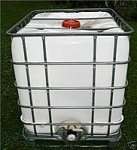Dhallftworth
Member
- 119
- 0
- 16
- Location
- Fort Worth, tx



Here is what I'm thinking about ordering from Dubadiesel.com, when the money gets right.
55 gallon ez-strainers from 600-75 microns.
Polyester Felt Filter bags from 50-1 micron. 32" long 7" diameter.
What do y'all think? My donated oil is in 55 gallon drums right now, so I will be looking for one of the 275 gallon storage containers. Everything will be gravity fed, and it will all most likely be done with a hand pump, unless an electric pump presents it's self for trade. Any tips or tricks, with these particular items?



